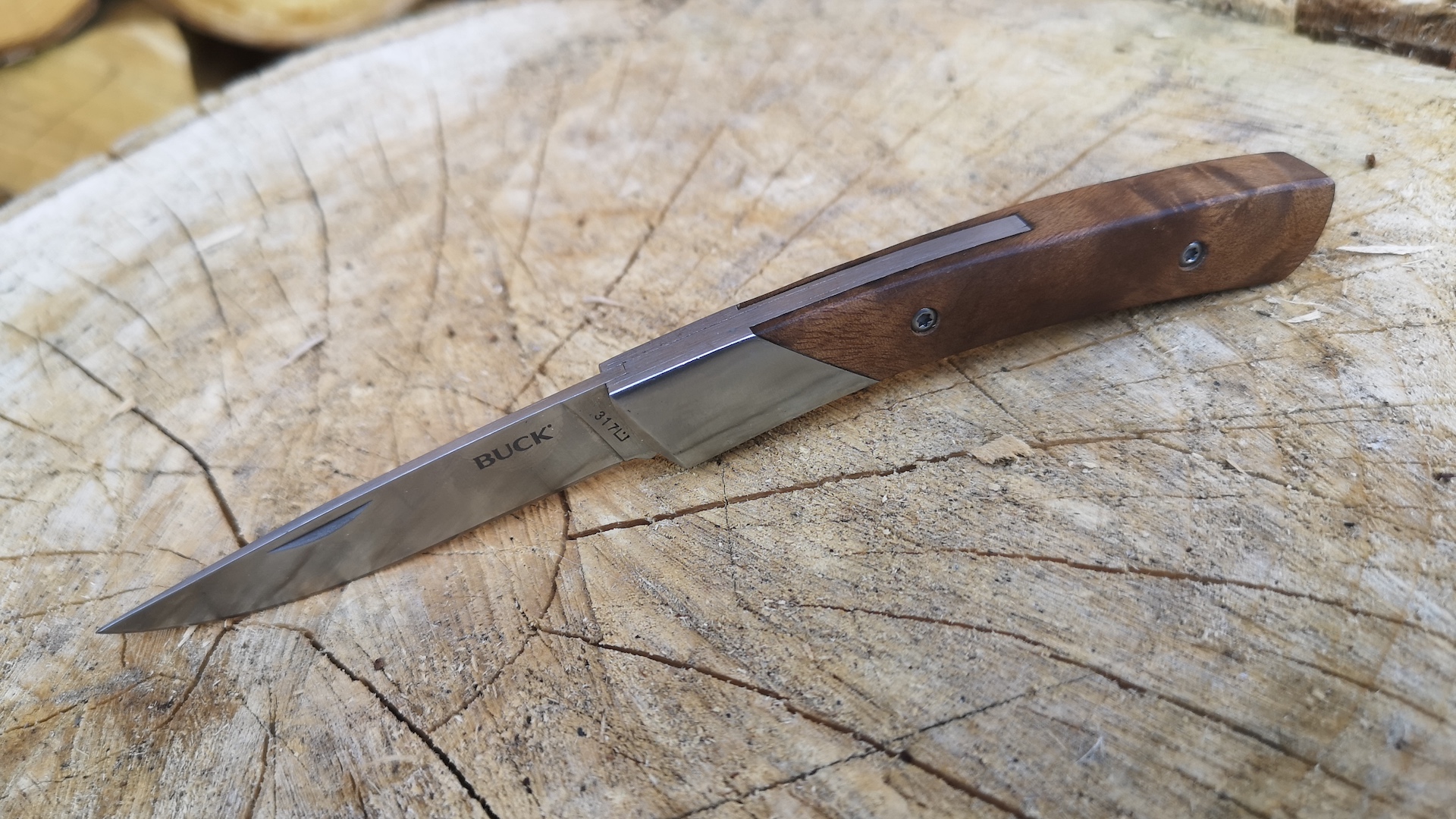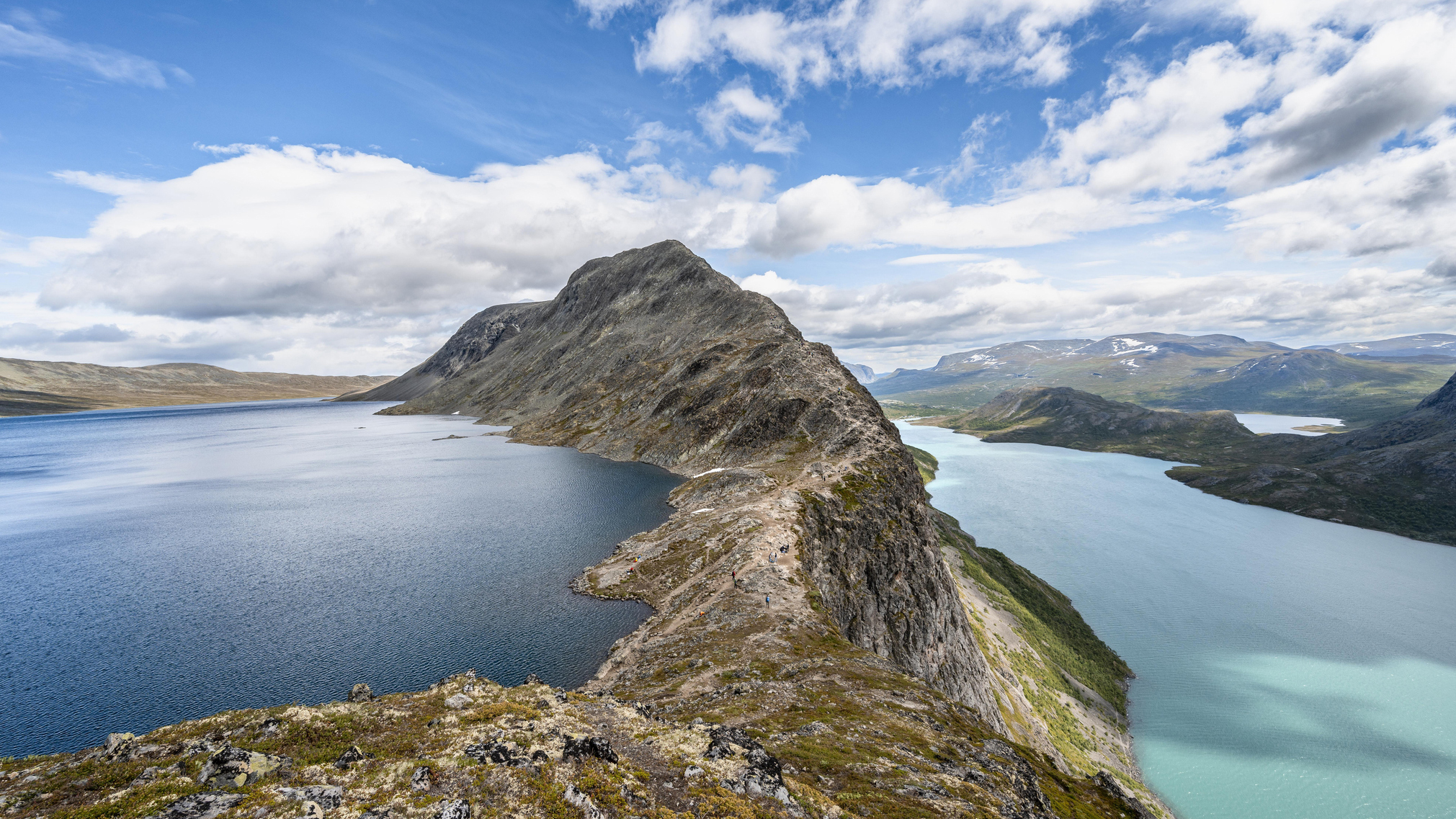Advnture Verdict
If you’re after a lightweight, compact and relatively inexpensive pocket-knife with classic looks, the Buck Ridgeway ought to prove a fuss-free, useful little companion.
Pros
- +
Classic, elegant looks
- +
Lightweight and compact
- +
Well-priced
Cons
- -
No blade half-stop
- -
Not the highest quality steel
You can trust Advnture
Buck Ridgeway: first impressions
The Buck Ridgeway is a dual nationality knife. Buck is a US brand dating all the way back to 1902, when a young Kansas apprentice blacksmith named Hoyt Buck developed a new way of tempering steel for knife blades. Fast-forward over a century later and Buck knives are still going strong, being best known today for their utility and survival knives as well as their extensive fishing, hunting and general outdoor models.
This knife is a little different from most of the Buck range, however. It was developed by the brand specifically for the UK market, and even the name references the Ridgeway, an ancient trackway that is one of the 16 designated National Trails in England and Wales. As such it was designed to conform to UK legislation for legal everyday carry, with a non-locking folding blade of less than 3 inches. This makes it a very practical tool and one that can be carried without concern whether hiking, hillwalking or camping. A strong contender for the best camping knife, perhaps?
The drop-point blade is forged from 420HC (High Carbon) stainless steel. So, although it’s still a stainless steel, the increased carbon content means increased hardness as well as easy sharpening. It’s an inexpensive Chinese-made steel, and one that is generally regarded as lower mid-grade, though Buck in particular are known for their 420 heat treatments that result in better edge retention and corrosion resistance than is typical. So, performance-wise, you’re not going to get the same levels as premium steels, but for a reasonably priced EDC knife (see What is Everyday Carry?), it’s still a solid choice. But you should also know how to sharpen a camping knife.
On the other hand, when it comes to looks, this is a handsome knife. The smooth, contoured Burlwood handle is classy and feels pleasantly tactile in the hand. This is finished with a brushed stainless-steel bolster that matches the blade finish nicely. There are also steel liners and flush-fitting screws to hold everything together in a neat little package.
• RRP: £37 (UK)
• Weight: 62g / 2.2oz
• Blade length: 7.1cm / 2.8in
• Overall length: 17cm / 6.7in
• Closed length: 9.52cm / 3.75in
• Materials: 420HC stainless steel blade and Burlwood scales
• Features: Flat grind / Drop point blade
In the field
The action is smooth, with a backspring that snaps satisfyingly into place. There’s no half stop, but then, the Ridgeway is very much intended as a general-purpose EDC blade rather than a tough, overbuilt outdoor tool. The nail nick in the blade is easy to use and the ergonomics of the knife are pretty good. It sits easily in the hand, with a pleasing symmetry between the curved handle and the spine of the blade.
In the field it proved that it was certainly up to most small camp tasks, from cutting cordage to prepping food. The Ridgeway also works well as an EDC knife for opening boxes and packages, or indeed almost any other day-to-day use. You could even put it to task as a steak knife. It slips easily into a pocket, while being light and compact enough not to be obtrusive. Admittedly, the lack of a pocket clip or lanyard hole means you do occasionally have to fish around for it in a pocket, but it’s hardly a dealbreaker. Overall, we liked this practical, versatile and elegant little knife a lot.
An outdoors writer and editor, Matt Jones has been testing kit in the field for nearly a decade. Having worked for both the Ramblers and the Scouts, he knows one or two things about walking and camping, and loves all things adventure, particularly long-distance backpacking, wild camping and climbing mountains – especially in Wales. He’s based in Snowdonia and last year thru-hiked the Cambrian Way, which runs for 298 miles from Cardiff to Conwy, with a total ascent of 73,700 feet – that’s nearly 2½ times the height of Everest. Follow Matt on Instagram and Twitter.


